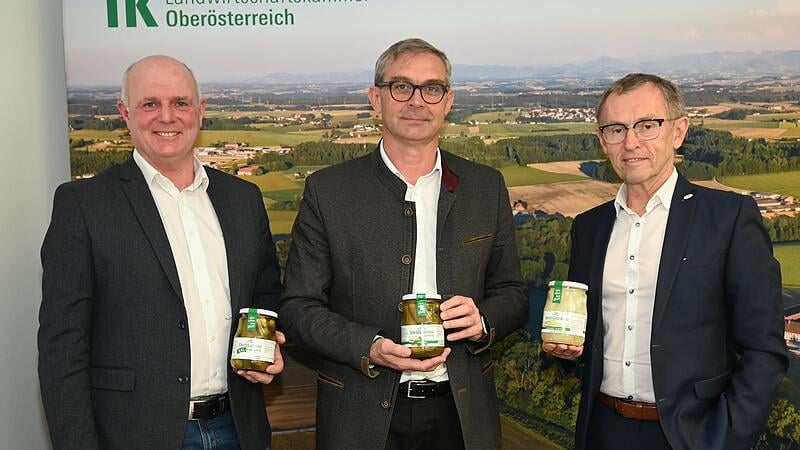13,000 tons of vinegar gherkins are consumed in Austria every year. Upper Austria is the number 1 pickle state: Twelve producers grow on 123 hectares, 93 percent of Austrian production comes from our state. However, competitiveness is decreasing, said Franz Waldenberger, President of the Upper Austrian Chamber of Agriculture, yesterday: With a total area of 2,164 hectares for vegetables, a peak was reached in 2022. Since then the numbers have been declining (2024: 1984 hectares) and farmers are quitting. If the conditions do not change, domestic fruit and vegetable cultivation would be at risk.
Waldenberger and Ewald Mayr, chairman of the fruit and vegetable growing association GEO, gave several reasons for this. Firstly, the regulation of plant protection products is particularly strict in Austria; products that are approved in other countries are prohibited. “As a result, the use of manual labor increases and there is a risk of lower yields,” says Waldenberger. Harmonization is needed here.
The wage and ancillary wage costs are high, especially in comparison to Germany: There, the first 70 days are free of ancillary wage costs, which is attractive for employers and employees. This is a disadvantage when looking for seasonal workers.
“}”>
Image: LKÖÖ
Source: Nachrichten




